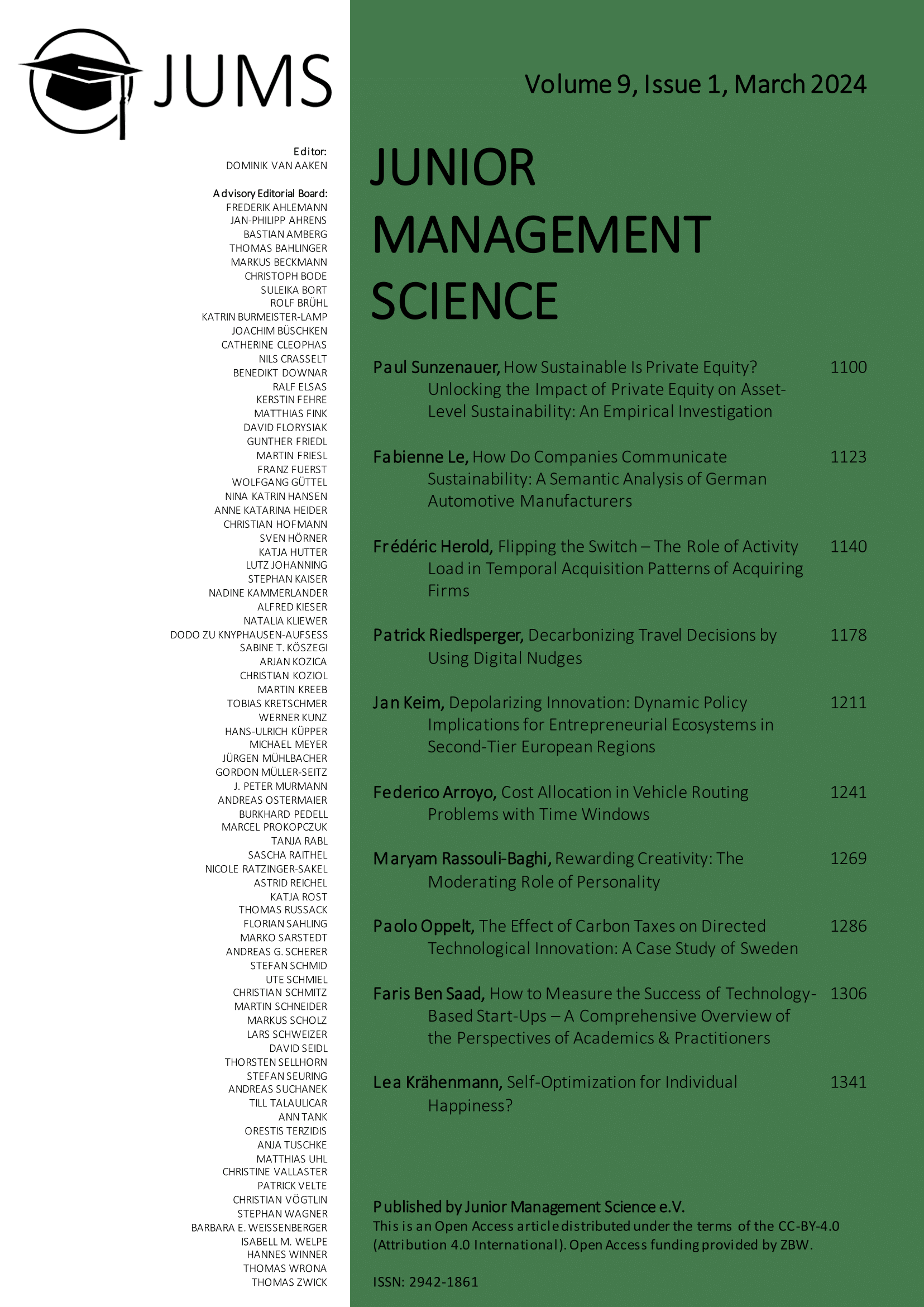Abstract
Successful technology start-ups can be a significant driver of a country’s economic development and could transform entire industries with new technological innovations. For this reason, in research and practice, special attention is always paid to one particular type of start-up: a successful one. To date, however, little research has been done on how to measure a start-up’s success. To advance the knowledge about start-up success measurement in academic research, this thesis investigates what academics and practitioners understand by a successful start-up and what they consider to be reliable measures of success. Several scientific studies dedicated to the examination of start-up success were analyzed and seven semi-structured expert interviews with venture capitalists from the early-stage investment sector were conducted. The results show that in both the academic and practical world, start-up success is perceived as a complex, multidimensional phenomenon whose measurement depends on a variety of different factors that may change over time. It is therefore concluded that a meaningful measurement of start-up success requires the use of a combination of different metrics to address this multidimensional nature of success.Successful technology start-ups can be a significant driver of a country’s economic development and could transform entire industries with new technological innovations. For this reason, in research and practice, special attention is always paid to one particular type of start-up: a successful one. To date, however, little research has been done on how to measure a start-up’s success. To advance the knowledge about start-up success measurement in academic research, this thesis investigates what academics and practitioners understand by a successful start-up and what they consider to be reliable measures of success. Several scientific studies dedicated to the examination of start-up success were analyzed and seven semi-structured expert interviews with venture capitalists from the early-stage investment sector were conducted. The results show that in both the academic and practical world, start-up success is perceived as a complex, multidimensional phenomenon whose measurement depends on a variety of different factors that may change over time. It is therefore concluded that a meaningful measurement of start-up success requires the use of a combination of different metrics to address this multidimensional nature of success.
Keywords: new venture performance; new ventures; startup success; startups; venture capital

This work is licensed under a Creative Commons Attribution 4.0 International License.
Copyright (c) 2024 Faris Ben Saad

